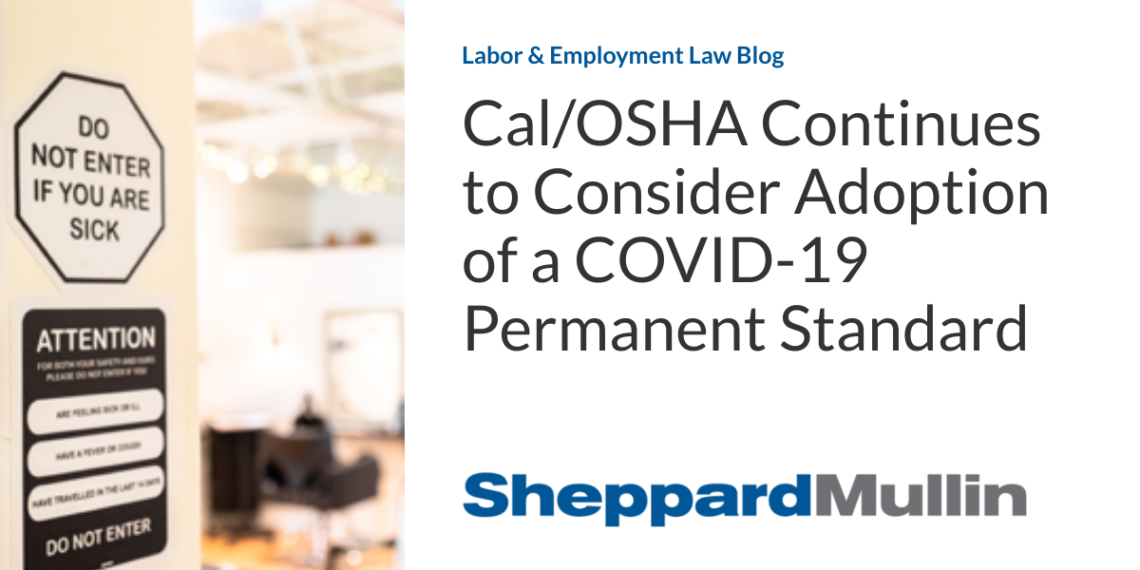[ad_1]
On September 15, 2022, the California Occupational Safety and Health Standards Board (“Board”) met to consider whether to adopt the proposed COVID-19 Permanent Standard (“Permanent Standard”)[1] to replace the current Emergency Temporary Standard, which is due to expire on December 31, 2022. The public hearing resulted in more questions being asked than answered, and no action on the proposed Permanent Standard was taken by the Board at the meeting.
The Board will now continue to review the Permanent Standard and will likely vote on its adoption at the Board’s meeting on December 15, 2022.
Comments and Concerns With the Proposed Permanent Standard
Comments from hearing participants focused on the necessity of the Permanent Standard given the current state of the COVID-19 virus, the burden it places on employers, and the level of protection it provides employees. Employers believe it imposes an unnecessary burden while labor representatives would like to see more safeguards put in place for employees.
Employers voiced four main concerns with the Permanent Standard: (1) its seemingly arbitrary two year duration; (2) its failure to not take into account the possible decline in COVID-19 cases; (3) its requirement to continue contact tracing despite the Center for Disease Control’s statements regarding the ineffectiveness of contact tracing; and (4) its insufficient definitions such as the revised definition for “close contact” which is more discretionary and places a higher burden on employers, and its definition of “outbreak” as anytime three or more COVID-19 cases occur in a 14-day period regardless of the size of an employer’s workforce.
Labor representatives, though largely in favor of adopting permanent COVID-19 regulations, mainly voiced concerns with the Permanent Standard’s employee protections. In particular, labor representatives opposed the elimination of a requirement for employers to provide exclusion pay to employees excluded from the workplace due to COVID-19. The legal landscape continues to evolve quickly and there is a lack of clear-cut authority or bright line rules on implementation. Sheppard Mullin will continue to stay up-to-date on the changes COVID-19 places on the employment environment. This article does not address the potential impacts of the numerous other local, state, and federal orders that have been issued in response to the COVID-19 pandemic, including, without limitation, potential liability should an employee become ill, requirements regarding family leave, sick pay, and other issues.
FOOTNOTES
[1] Information regarding the proposed Permanent Standard can be found here.
[ad_2]




